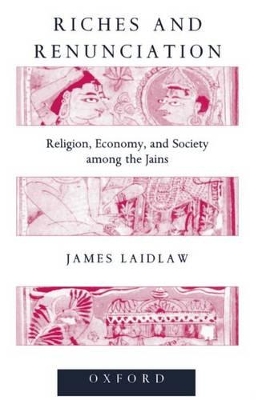How can one live by impossible ideals and values? The Jains of India are a flourishing and prosperous community, but their religion is focused on the teaching and example of ascetic renouncers, whose austere regime is actually dedicated to ending worldly life and often culminates in a fast to death. This book draws upon a detailed study of an urban Jain community in Jaipur, north-west India, to offer the fullest account yet given of Jain religious belief and
practice. It shows how renunciation and asceticism play a central part in the life of a thriving business community, and how world-renunciation combines for Jain families with the pursuit of worldly happiness.
The book is in five parts. Part I introduces the vivid mythology and doctrine of Jainism, and the traditions of Jain renouncers. Part II discusses the relations of Jains with other groups in Indian society, the politics of leadership on Jain communities, and the history, character, and composition of the Jain community in Jaipur. Part III contains detailed analyses of lay ascetic practices such as fasting and confession, traditions of imagery and iconography, and key religious ideas, such
as the paradoxical doctrine of 'non-violence' (ahimsa). These are shown to turn on complex conceptions of the body and contrasting moral topographies of self. Part IV concerns relations between lay Jains and renouncers, and draws on recent writing on exchange and value to analyse the pivotal place
of alms-giving in the Jain religion. Part V describes some of the closest connections between riches and renunciation, and shows how the pan-Indian festival of Diwali is adapted to distinctively Jain values and concerns.
- ISBN10 0198280424
- ISBN13 9780198280422
- Publish Date 28 December 1995 (first published 1 December 1995)
- Publish Status Active
- Publish Country GB
- Publisher Oxford University Press
- Imprint Clarendon Press
- Format Paperback
- Pages 446
- Language English
